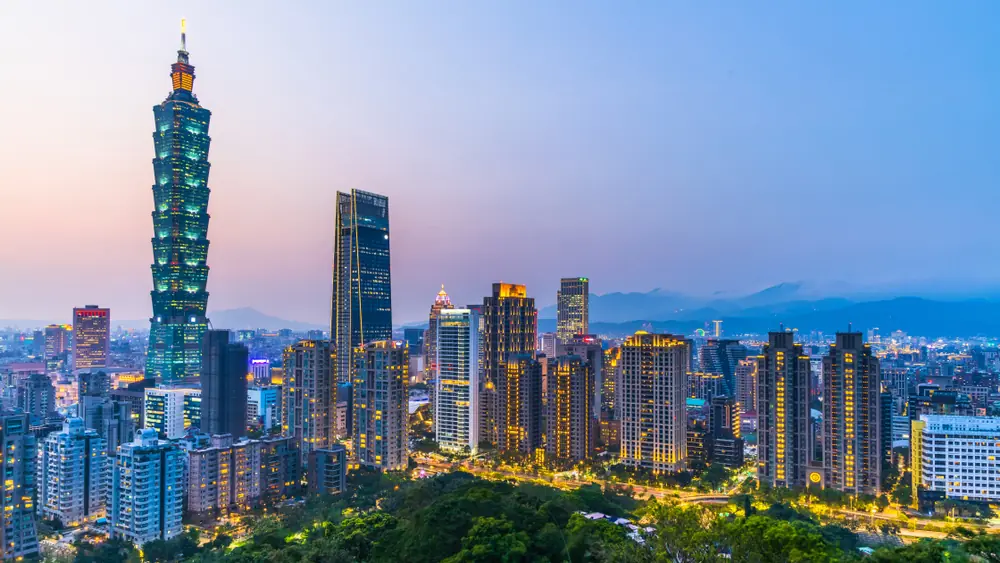Taiwan Cost of Living

Taiwan, regarded for its high-quality education and rich culture, is a popular destination for foreign students seeking academic achievement and cultural immersion. With the expanding number of international students, there is an increasing fascination with the Taiwan’s cost of living, including but not limited to reasonable accommodation, diversified and affordable cuisine, and efficient public transit. This interest is fueled by budget-conscious students and those seeking to mix academics with an engaging life in this vibrant Asian society.
Along these lines, let’s explore in detail the various expenses in Taiwan.
Breakdown of Living Costs in Taiwan

Housing and Accommodation Costs
Housing options reflect the Taiwan’s cost of living and suit many tastes and budgets. Locals and expatriates may select from luxury, private, and shared homes. Students and young professionals may save money by living in shared flats or dorms. Urban solitary flats and luxury condos are provided for seclusion or family life. These alternatives balance affordability and convenience with different sizes, facilities, and locations.
Major cities’ average rental costs vary with Taiwan’s cost of living. Taipei has the highest rental prices owing to its economic and cultural importance. Standard one-bedroom apartments in the city center cost NT$21,000 (US$700) per month. Taichung and Kaohsiung, both major cities, are cheaper. Similar places may cost NT$10,000 to NT$15,000 (US$320 to US$480) in Taichung and NT$8,000 to NT$12,000 (US$250 to US$285) in Kaohsiung. These data show how geography and urban density affect Taiwan’s cost of living.
Food and Dining Expenses
For international students in Taiwan, managing the cost of living is crucial, and when it comes to food expenses, they’ll find a favorable environment for their budgets. Groceries in Taiwan are quite affordable, which is a relief for students looking to prepare meals at home and save money. Items like rice and milk won’t eat up much of their budget, enabling them to cook a variety of dishes without overspending.
While a dinner at a mid-range restaurant could be a rare treat due to higher costs, Taiwan’s rich street food scene comes to the rescue. It’s not only a budget-friendly alternative to eating out but also an integral part of the local culture. Street food stalls and night markets are where affordability meets variety and flavor, offering everything from stinky tofu to bubble tea. This is an excellent way for students to enjoy eating out without the guilt of high spending.
Balancing cooking at home with inexpensive groceries and exploring Taiwan’s famed street food gives international students a practical yet enjoyable way to handle living costs. This approach not only caters to their financial constraints but also immerses them in the daily life and culinary traditions of Taiwan, enhancing their study abroad experience.
Transportation Expenses
The transportation options in Taiwan cater to both residents and tourists, reflecting the country’s cost of living in terms of travel. MRT is efficient and serves Taipei, Taichung, and Kaohsiung. One-way MRT tickets cost NT$20-60 (US$0.64-1.91), depending on distance. Apart from the MRT, buses offer complete coverage for NT$15-NT$30 (US$0.48-US$0.96) one-way. The Taiwan HSR links major cities throughout the island for longer distances, with one-way prices from NT$40 to NT$1, 530(US$1.29 to US$49.34), depending on the distance. Traditional TRA trains cost NT$1.06-NT$2.27 (US$0.034-US$0.072) per kilometer, so they’re cheaper.
Scooters and cars also affect Taiwan’s cost of living for transportation. Scooters’ ease and affordability make them popular. Purchasing a scooter generally costs NT$40,000-NT$70,000 (US$1,289-2,257). Taiwanese car ownership is far more costly. E.g., a 2021 Toyota Camry L costs NT$708,180 (US$22,560). Insurance, registration, fuel tax, and parking costs may be expensive for car owners. Parking costs NT$3,000-NT$6,000 (US$96-US$191) per month, while petrol costs NT$119.619 (US$3.81) per gallon. Because of its efficiency and affordability, public transit is a better alternative for Taiwanese locals and expats given the Taiwan cost of living.
Lifestyle and Entertainment Costs
Leisure costs in Taiwan vary for several interests and budgets. The average movie ticket costs NT$322 (US$10.26) for moviegoers. Sports fans may enjoy gym memberships, which cost NT$800 to NT$1,500 (US$25.5 to US$ 47.8) per month and include regular gym equipment, group lessons, and swimming pools. Taiwan boasts active, diversified nightlife in Taipei. These interests are affordable for frequent delight without raising the Taiwan cost of living.
Taiwan’s entertainment options fit various budgets thanks to the low Taiwan cost of living. Street food shops provide genuine, affordable meals for as little as NT$50 (US$1.6). Museums provide cultural events at NT$100-300 (US$3-9) to everybody. Outdoor activities like hiking in Taiwan’s scenery are free. The Internet costs roughly NT$900 (US$29) per month for streaming and games. Taiwan’s entertainment sector has economical and high-end alternatives for expats and locals while fitting nicely within living expenditures.
Healthcare and Insurance Costs
Taiwan’s cost of living is affected by its efficient and accessible healthcare system. National Healthcare Insurance, or NHI, refers to a national healthcare policy that covers outpatient visits, hospitalization, dental care, traditional Chinese medicine, and prescription medications. After staying for six full months in Taiwan, expatriates may join the NHI program. This NHI inclusion assures high-quality, affordable healthcare. The NHI covers most of the cost of a medical visit, which may cost around NT$150 to NT$200 (US$5 to US$7).
Taiwan leads in efficiency and quality of healthcare services. Taiwan’s healthcare services are comparable to many industrialized nations, yet the Taiwan cost of living, including healthcare, is inexpensive. Using smart cards for administrative and patient data management renders the NHI efficient. Expats and locals save a lot on medical services due to cheap direct prices and high-quality treatment. In Taiwan, a sophisticated surgery that would cost many dollars in other countries may be done for a fraction of the cost without sacrificing quality. Hence, Taiwan is a good choice for people seeking practical and high-quality healthcare.
Comparison of the Living Cost in Taiwan with Indonesia
| Cost of Living Component | Taiwan (Taipei) | Indonesia (Jakarta) | Key Differences |
| Average Monthly Rent (1-bedroom apartment in the city center) | US$700 | US$450 | Taiwan’s rent is higher because of a more developed urban infrastructure. |
| Utilities (Monthly average for a standard apartment) | US$100 including electricity, heating, cooling, water, garbage | US$92 | Utilities in Taiwan are moderately higher, likely due to more extensive use of technology and higher quality of living standards. |
| Food Expenses (Monthly groceries; dining out) | Dining out: US$6-$38 per meal; Groceries: Over US$100 | Dining out: US$2-$22 per meal; Groceries: Over US$70 | Dining out and groceries are generally cheaper in Indonesia. |
| Transportation (Public transport; Owning a vehicle) | Affordable public transportation; High-speed rail and metro available | Cheaper public transport; Higher reliance on scooters and motorcycles | Taiwan offers more advanced public transportation options, while Indonesia is more reliant on personal vehicles. |
| Average Salary (Monthly) | US$1386 | US$530 | Higher salaries in Taiwan indicate a stronger economy and higher living costs. |
| Healthcare | Globally renowned for accessibility and affordability | Affordable but varying quality | Taiwan’s healthcare system is more advanced with higher accessibility and quality. |
| Quality of Life | High quality of life with excellent infrastructure, safety, and healthcare | Good quality of life with rich culture, but varies between urban and rural areas | Taiwan offers a more consistent high quality of life across the country compared to Indonesia. |
Final Words
Taiwan’s high-quality education and low cost make it an attractive option for students. Students interested in Taiwanese institutions may also find information about courses, eligibility, and application procedures on UECFOCS. Plus, the University Entrance Committee For Overseas Chinese Studentsoffers overseas Chinese students the same privileges as Taiwanese nationals, including lower tuition and complete health insurance. Taiwan is a feasible option for students pursuing technical proficiency without financial burden due to the low Taiwan cost of living.
Funded by the Ministry of Education.

